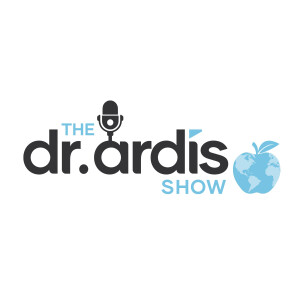

University of Texas Southwestern, July 6, 2021
New research suggests one year of moderate-to-vigorous intensity aerobic exercise training improved cardiorespiratory fitness, cerebral blood flow regulation, memory and executive function in people with mild cognitive impairment. The data suggest improvement in cerebrovascular function from exercise training also has the potential to reduce the risk of Alzheimer's disease in older adults, according to the research team at the University of Texas Southwestern Medical Center. The research paper is published in the Journal of Applied Physiology.
Alzheimer's disease is the most common cause of dementia, accounting for 60–80% of dementia cases, according to the Alzheimer's Association. The group estimates more than 6 million people living in the U.S. with Alzheimer's.
More facts from the Alzheimer's Association:
- Alzheimer's kills more people than breast cancer and prostate cancer combined.
- Alzheimer's deaths have increased by 16% during the COVID-19 pandemic.
- In 2021, Alzheimer's is projected to cost the nation $355 billion.
In this new study, the research team observed 37 people with mild cognitive impairment, which is a precursor stage of Alzheimer's disease. At the beginning of the study, the subjects participated in three exercise sessions per week that consisted of brisk walking for 25–30 minutes. By week 11, they exercised four times a week, walking briskly uphill for 30–35 minutes per session. After week 26, exercise sessions increased to four to five times per week for 30–40 minutes.
Using these findings as a building block, a new two-year study is underway to determine the long-term impact of aerobic exercise on Alzheimer's disease, according to Tsubasa Tomoto, Ph.D., a member of the research team. The researchers' goal is to turn the findings of both studies into more practical ways to mitigate the risk of the disease.
University of Malaya (Malaysia), June 30, 2021
A systematic review of randomized trials that appeared on May 24, 2021 in Nutrition Reviews concluded that probiotic intake is associated with a number of beneficial effects in colorectal cancer (CRC) patients with any stage of the disease.
Probiotics are living microorganisms (typically bacteria, but also yeasts such as Saccharomyces spp.) that when consumed in adequate amounts have been shown to benefit the health of the body. Consuming probiotics may benefit gut health, nutritional status, immune function and even brain health. Prebiotics are foods (often non-digestible oligosaccharides such as xylooligosaccharides) that nourish probiotics and the healthy bacteria in the gut and support their maintenance within the body.
For their review, researchers at the University of Malaya in Kuala Lumpur, Malaysia screened numerous databases, finding 23 randomized, controlled trials that met the criteria for their review. The studies included a total of 2,457 participants who had undergone surgery for various stages of CRC. A total of 1,403 participants received probiotics and 1,054 participants served as controls.
Of the included studies, 12 trials evaluated the effects of a mixture of probiotics, 7 trials used synbiotics (which combine prebiotics with probiotics), 3 trials used single strains of probiotics and 1 trial used the fermented milk beverage kefir. The probiotics most commonly administered included Bifidobacteria and Lactobacillus varieties. Six of the included trials analyzed the effects of probiotics on gut microbiota, 4 trials studied their effects on the immune system and inflammatory biomarkers, 18 examined postoperative complications, 7 evaluated length of hospital stay, 4 measured quality of life improvement, 2 assessed tumor growth and tumor stage development, and mortality was assessed in two trials.
The researchers found probiotics improved gut microbiota diversity, and in one study also reduced amounts of a bacteria shown to be present at higher levels in patients with CRC. In multiple studies, there were fewer postoperative infection complications, less proinflammatory cytokine production and better quality of life occurred among participants who took probiotics compared to the control groups. Probiotic intake was also found to decrease chemotherapy side effects, decrease tumor growth, improve surgery outcomes, shorten hospital stay and lower risk of mortality.
“The use of probiotics and synbiotics provides numerous health benefits, as seen in this systematic review,” the authors wrote. “The findings in this systematic review also highlight the importance of preoperative administration of probiotics or synbiotics as well as postoperative administration of probiotics, especially for patients with colorectal cancer who have invasive surgeries and are on a chemotherapy regimen.”
In closing, they note “In the future, the use of probiotics against colorectal cancer should be able to broaden and become more personalized in treatment of patients with colorectal cancer. Dietitians, nutritionists, and general practitioners should also recommend intake of probiotic[s]…more frequently to reduce the risk of colorectal cancer development, and the administration of probiotics should commence at the first diagnosis of colon polyps.”
University of Kentucky College of Medicine, July 2, 2021
A new University of Kentucky College of Medicine study suggests that time-restricted eating may be able to help people with Type 2 diabetes reduce nocturnal hypertension, which is characterized by elevated blood pressure at night.
The study published in PNAS June 22 found that time-restricted eating, a routine in which eating is restricted to a specific window of time during each day, helped prevent and improve diabetes-related nocturnal hypertension in mice.
Study authors Ming Gong, Ph.D., M.D., professor in the Department of Physiology, and Zhenheng Guo, Ph.D., professor in the Department of Pharmacology and Nutritional Sciences, are hopeful their findings will mean time-restricted eating could offer similar benefits for people.
"We are excited about these findings and the implications they could have in future clinical studies," said Guo. "In addition to lifestyle changes like diet and exercise, time-restricted eating could have a healthy impact on people with Type 2 diabetes."
Normally, blood pressure falls at night and increases upon awakening, in line with the body's circadian rhythm. In some hypertensive patients, the typical nighttime decrease does not occur. This "nondipping" blood pressure is prevalent in patients with Type 2 diabetes and is associated with increased events of cardiovascular disease.
The study found that imposing time-restricted feeding prevented diabetic mice from developing nondipping blood pressure. The practice also effectively restored the disrupted blood pressure circadian rhythm in mice that already had nondipping blood pressure.
Researchers restricted the mice's access to food to eight hours during their typical active awake times every day. When food availability was increased to 12 hours, the practice was still effective in preventing and treating nondipping blood pressure. Guo says this is evidence that the effects were caused by the timing of feeding and not calorie restriction.
In addition to the study's significance for future clinical research in people, Gong says it's adding to scientists' understanding of the causes and mechanisms of nondipping blood pressure in diabetes, which is currently not fully understood.
"There are already many studies that show the health benefits of time-restricted eating, particularly for metabolic issues," Gong said. "This is the first basic science research focused on how it impacts nondipping blood pressure related to diabetes and it reveals that the daily timing of food intake could play a critical role."
Urmia University of Medical Sciences (Iran), July 1, 2021
According to news reporting out of Urmia University of Medical Sciences by NewsRx editors, research stated, “Hypertension is one of the leading causes of mortality in the world. The aim of this study was to evaluate the relationship of plasma 25-hydroxyvitamin D levels with markers of metabolic syndrome and ambulatory blood pressure monitoring.”
Our news journalists obtained a quote from the research from Urmia University of Medical Sciences: “This was a cross-sectional study on 171 adults (79 men) with primary hypertension and mean age of 50.70 ± 10.88 years, who did not take vitamin D supplement for the past 6 months. Subjects were divided into two groups as deficient (30 ng/ml ) and normal levels of vitamin D (30 ng/ml
More Episodes
All Episodes>>You may also like
Create Your Podcast In Minutes
- Full-featured podcast site
- Unlimited storage and bandwidth
- Comprehensive podcast stats
- Distribute to Apple Podcasts, Spotify, and more
- Make money with your podcast
- Privacy Policy
- Cookie Policy
- Terms of Use
- Consent Preferences
- Copyright © 2015-2025 Podbean.com












